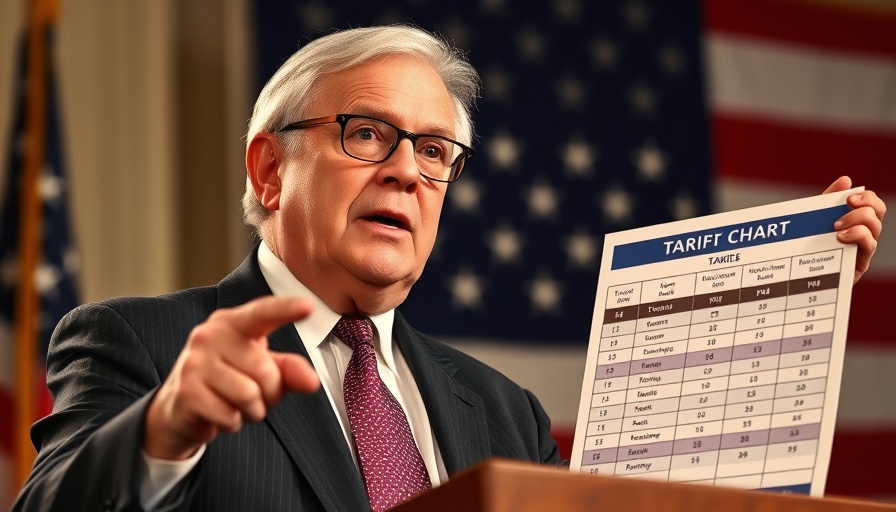
The Impact of Tariffs on Asian Markets
Recent economic turbulence has gripped global markets, particularly in Asia, where the selling wave has accelerated following U.S. President Donald Trump's announcement of new tariffs on Chinese goods. The tariffs, aimed at reshaping trade relations, have had a profound impact on investor sentiment across Asia. The notable decline of Japan’s Nikkei 225 index, which plunged by 8%, reflects the heightened fear among investors regarding the potential implications of prolonged trade conflicts.
Understanding the Causes Behind the Decline
The pain felt in Asian markets is not isolated to just Japan. Broader trends showcase significant drops in major indices, with investors responding to uncertainties associated with U.S.-China trade negotiations. However, the essence of the downturn transcends tariffs. It stems from a growing apprehension about global economic stability. Tariffs can lead to increased costs for consumers and businesses, potentially hampering economic growth and employment rates.
Historical Context and Background of U.S.-China Trade Relations
The relationship between the U.S. and China has long been characterized by fluctuations between cooperation and conflict. Historically, tariffs have served as tools of negotiation rather than final solutions. As seen in previous disputes, such negotiations take time, creating ripples across markets worldwide. This backdrop is crucial for understanding the current climate; tariffs not only symbolize immediate economic challenges but also highlight a broader struggle for economic dominance.
Social Connection: How Tariff News Affects Daily Life
While heavy trading on the stock market may seem a distant concern, the effects of tariffs often trickle down to everyday life. Increased costs of imported goods can lead to inflation, impacting household budgets. Moreover, companies facing higher manufacturing costs may pass on those costs to consumers, heightening concerns about the affordability of essential products. This interconnection emphasizes how international economic policies can have local implications, resonating with families across the nation.
Future Predictions: What Lies Ahead for U.S.-Asian Markets?
Looking forward, analysts suggest that as U.S. and China navigate their turbulent trade relationship, further volatility in Asian markets is likely. Investors are left wondering about the long-term impact of these tariffs. Some financial experts speculate that the situation may ultimately lead to more significant collaborations among Asian countries to create economic buffers against U.S. policy changes. On the flip side, continued conflict could spark a more profound economic crisis, reminiscent of the 2008 financial meltdown.
Addressing Counterarguments: Diverse Perspectives on Tariff Measures
While many criticize tariffs as detrimental to markets, others argue that they are necessary for protecting domestic interests. Proponents of this view suggest that securing American jobs and industries should take precedence over short-term market fluctuations. This debate highlights the complexity of tariff implementations, as they carry both economic risks and potential benefits.
Decisions You Can Make With This Information
For individuals looking to make informed investment decisions or manage their finances amid uncertainty, understanding market movements and underlying causes is vital. This knowledge serves as a guide for navigating potential risks in the market. Awareness of how global events shape national trends can empower consumers and investors alike.
Conclusion: Navigating the Challenges Ahead
As Asian markets reel from the aftershocks of tariff announcements, the ripple effects on individuals and industries are becoming increasingly apparent. Staying informed and proactive will be essential for navigating future challenges. Whether you are an investor, a business owner, or a consumer, understanding these dynamics can provide a crucial edge in response to the evolving economic landscape.
Now is the time to engage with the news—staying informed allows you to draw your conclusions and make informed decisions for your financial future. By understanding tariffs and their implications, each of us can better navigate today's complex economic landscape.
 Add Element
Add Element  Add Row
Add Row 



Write A Comment